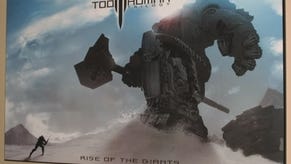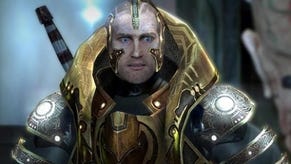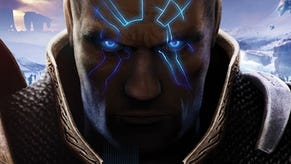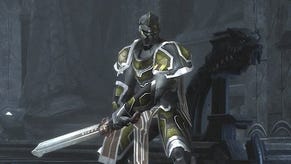Silicon Knights' Denis Dyack
Taking on Epic, reviewers and the internet.
There's no question: I think that was one of the reasons I did what I did. From a standpoint of journalism and publishers and showing games before they're ready, we have all these different side effects where our culture as games industry is desperately trying to keep pace with technology's advance. And because we're so close to it, what I call being on the bleeding edge, society's having a hard time keeping up with technology as it is. Even people who are technologically savvy are not understanding the ramifications of this advance and how it's affecting our industry in both negative and positive ways and I think we need to think about it.
Well, it certainly wasn't a publicity stunt; it was more a comment on technology for sure. It was to try to improve things in a positive way. In some sense it's what Too Human talks about - what we're trying to do as gamers, as game designers, is to create games that have a positive influence on society as best we can.
It's not really striking back against the forumites; that's not really what the point was. The point was more trying to get people to understand the forums for what they are, for being inaccurate, hyperbolic and not really based on fact. From a standpoint of, should other developers do it, I think they should do what they feel comfortable with. I certainly had a lot of people say, 'I wouldn't have done what you've done', and to a large extent, commenting on that, it can be really scary and can result in really negative things.
For us, time will tell how it results in the end. In some circumstances, it's brought some attention, and I guess we'll find out in the end whether that's positive or negative. We had the best intentions in mind, is what we're trying to say.
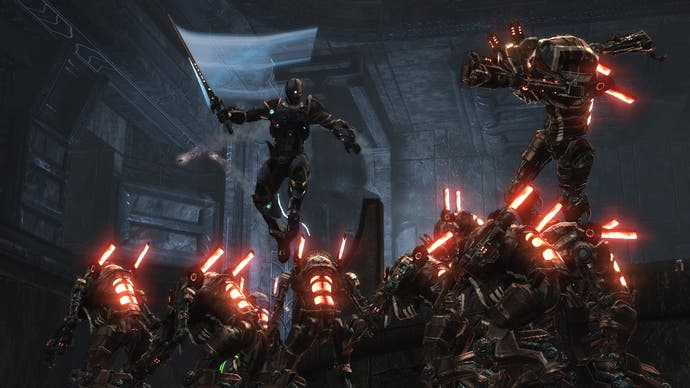
No-one knew I was going to do it, so no.
Fine.
Well, certainly a lot of the criticism came from the Unreal Engine failing us at E3 2006, there's no question about that. We've certainly taken action on that. Silicon Knights is a developer that, if the emperor has no clothes, we'll stand up and say that; and we'll take stands and do what's right whether it's popular or not.
In the end, one of the problems with our industry is often we're showing the process rather than the end result. In the movie industry and other industries they don't really do that: you don't get to hear an album before it's finished and you don't often see movies before they're finally cut. And our industry is holding on to old habits that aren't necessarily the best thing.
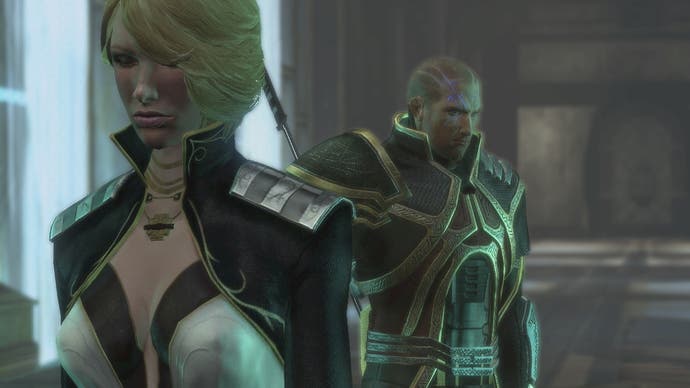
With Too Human, there was so much noise around the process rather than the end result that we felt we had to come out with this demo, which was really the only chance we had. We've certainly had so many mixed reactions... You look at any previews or reviews and often times, rather than focus on the end result they comment on how long the game's been in development or whatever, which is completely irrelevant.
Really what matters is how good is the game and should people buy it - it doesn't matter if the game was in development for the last 2,000 years. In the end it's: are people going to have fun with this game, and it's all lost in this process - the process is broken in the industry. And it's not just the press, it's the publishers, it's the developers, it's everyone - there's too many games.
When 350 games come out in November, how can somebody in the press review every single one with an in-depth and very devoted way? That's pretty challenging. And I'm not really blaming anyone, or saying it's anyone's particular fault, but what we try to do is say that when we make these comments, there's something broken here and we're going to try and fix it, and here's what we think we need to do and we'll stand up and say it.

